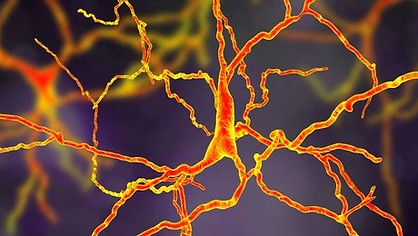S I N C E 2 0 0 7
Dong-Gyu Jo
Research Group
We are devoted to elucidating the molecular mechanisms underpinning the pathophysiology of neurodegenerative diseases and developing novel therapeutics for various types of diseases using engineered extracellular vesicles.

Research Interests

Aging
Aging increases the risk of diseases such as cancer, neurodegenerative diseases, diabetes, cardiovascular disease, stroke, and many more. We focus on employing a multifaceted array of experimental models of aging to establish the cellular and biochemical changes that occur during aging. We also focus on elucidating the cellular and biochemical signaling mechanisms that lead to neuronal degeneration and brain aging.

Alzheimer's disease
Alzheimer’s disease (AD) is the most common form of dementia for there is still no cure or effective treatment. We focus on identifying new AD risk factors, repurposing FDA-approved drugs, and developing gene therapy for AD using patient-derived neurons with diverse screening and reporter systems. We also focus on elucidating the roles of extracellular vesicles in the central nervous system.

Parkinson's disease
Parkinson’s disease (PD) is a progressive neurodegenerative disorder characterized by the loss of dopaminergic neurons. We focus on elucidating the molecular mechanism underlying dopaminergic neuronal death and identifying new PD risk factors by RNA-seq and ATAC-seq in patient-derived neurons. We also focus on developing nanomedicine for PD based on extracellular vesicles.

Extracellular vesicles
Extracellular vesicles (EVs), nanosized membrane vesicles that are naturally secreted by various types of cells, are emerging as one of the most promising nanocarriers for bioactive molecules. We focus on engineering EVs to develop novel EV-based intracellular protein delivery systems which can be applied to various diseases associated with specific protein deficiencies or gene mutations.
Recent Publications
Engineered exosomes with a photoinducible protein delivery system enable CRISPR-Cas–based epigenome editing in Alzheimer’s disease
Han J*, Sul JH, Lee J, Kim E, Kim HK, Chae M, Lim J, Kim J, Kim C, Kim JS, Cho Y, Park JH, Cho YW, and Jo DG†.
Science Translational Medicine 2024 7;16(759):eadi4830 (IF: 15.8)
Engineered small extracellular vesicles displaying ACE2 variants on the surface protect against SARS-CoV-2 infection
Kim HK*, Cho J*, Kim E, Kim J, Yang JS, Kim KC, Lee JY, Shin Y, Palomera LF, Park J, Baek SH, Bae HG, Cho Y, Han J, Sul JH, Lee J, Park JH, Cho YW, Lee W†, and Jo DG†.
Journal of Extracellular Vesicles 2022 11(1):e12179 (IF: 15.5)
Extracellular vesicles from adipose tissue-derived stem cells alleviate osteoporosis through osteoprotegerin and miR-21-5p
Lee KS*, Lee J*, Kim HK, Yeom SH, Woo CH, Jung YJ, Yun YE, Park SY, Han J, Kim E, Sul JH, Jung JM, Park JH, Choi JS†, Cho YW†, and Jo DG†
Journal of Extracellular Vesicles 2021 10(12):e12152 (IF: 15.5)
Alzheimer's disease-causing presenilin-1 mutations have deleterious effects on mitochondrial function
Han J, Park H, Maharana C, Gwon AR, Park J, Baek SH, Bae HG, Cho Y, Kim HK, Sul JH, Lee J, Kim E, Kim J, Cho YE, Park SY, Palomera LF, Arumugam TV, Mattson MP†, Jo DG†
Theranostics 2021 11(18):8855-8873 (IF = 12.4)
Reactive oxygen species-responsive dendritic cell-derived exosomes for rheumatoid arthritis
Lee ES, Sul JH, Shin JM, Shin S, Lee JA, Kim HK, Cho Y, Ko H, Son S, Lee J, Park S, Jo DG†, Park JH†
Acta Biomaterialia 2021 128:462-473 (IF = 9.4)
O-GlcNAcylation ameliorates the pathological manifestations of Alzheimer's disease by inhibiting necroptosis
Park J, Ha HJ, Chung ES, Baek SH, Cho Y, Kim HK, Han J, Sul JH, Lee J, Kim E, Kim J, Yang YR, Park M, Kim SH, Arumugam TV, Jang H, Seo SW, Suh PG, Jo DG†
Science Advances 2021 13;7(3):eabd3207 (IF = 14.98)